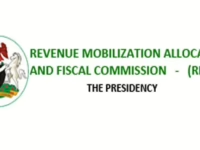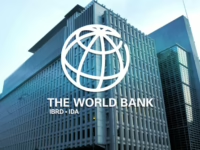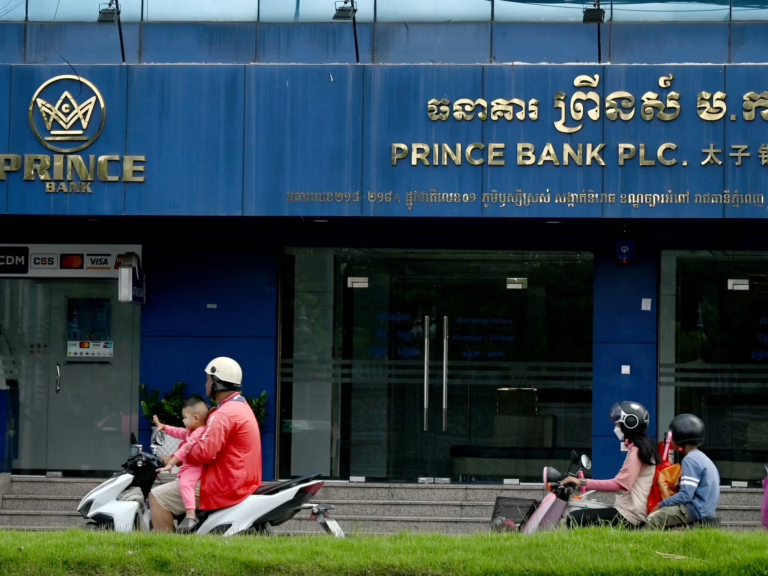The United States and the United Kingdom have jointly imposed extensive sanctions on a transnational criminal syndicate operating in Southeast Asia. This network, based primarily in Cambodia and Myanmar, orchestrates a series of fraudulent “scam centres” that exploit trafficked individuals to deceive victims worldwide through fake cryptocurrency investment schemes.
On Tuesday, the US Treasury Department announced what it called the most significant enforcement action ever taken in Southeast Asia, targeting 146 individuals linked to the Cambodia-rooted Prince Group, which it officially designated as a transnational criminal organization.
Simultaneously, the UK government imposed sanctions on six entities and persons connected to the Prince Group, freezing 19 properties in London valued at over £100 million ($134 million) that are tied to the network’s illicit activities.
“This operation marks one of the most impactful efforts to combat the global crises of human trafficking and cyber-enabled financial fraud,” stated US Attorney General Pam Bondi.
In a related development, US federal prosecutors unveiled an indictment against Chen Zhi, a Chinese-Cambodian businessman and the 37-year-old chairman of the Prince Group. Known also as Vincent, Chen faces charges including wire fraud and conspiracy to launder money. He remains at large and could face up to 40 years in prison if convicted.
The US Justice Department also initiated the largest asset forfeiture case in its history, seizing Bitcoin assets valued at more than $14 billion at current market rates.
‘Crypto Romance’ Fraud Schemes
Assistant Attorney General John Eisenberg described Chen as the “architect of an extensive cyberfraud empire,” while US Attorney Joseph Nocella characterized the operation as “one of the most massive investment fraud schemes ever uncovered.”
The Prince Group allegedly managed a network of specialized scam facilities functioning as forced labor camps across Cambodia, Myanmar, and neighboring countries. Many of the trafficked workers, predominantly Chinese nationals, were deceived by fraudulent job offers and subsequently coerced into participating in online scams under threats of violence.
These coerced individuals engaged in what are known as “crypto romance” scams, where victims were manipulated into fake romantic relationships online and persuaded to invest substantial amounts into counterfeit cryptocurrency platforms.
Luxury Assets Funded by Fraudulent Gains
Prosecutors revealed that the illicit proceeds were laundered through the Prince Group’s gambling enterprises and cryptocurrency mining ventures.
The stolen funds financed extravagant acquisitions, including luxury yachts, private aircraft, vacation estates, and a Picasso painting purchased at a New York auction.
At one point, Chen reportedly boasted that the scam generated $30 million in daily revenue.
Since approximately 2015, the Prince Group has operated in over 30 countries, masquerading as legitimate businesses in real estate, finance, and consumer sectors. Prosecutors allege that Chen and his associates leveraged political connections and bribery across multiple nations to shield their operations from scrutiny.
Jacob Daniel Sims, an expert on transnational crime and visiting fellow at Harvard University’s Asia Center, told The Associated Press that the Prince Group forms a critical backbone enabling global cyber fraud.
Sims further noted that Chen is a “key figure” within the criminal economy closely linked to Cambodia’s political elite, having served as an advisor to both current Prime Minister Hun Manet and former Prime Minister Hun Sen.
“While these indictments and sanctions won’t immediately dismantle the network, they significantly alter the risk environment,” Sims explained.
He added that these measures compel “banks, real estate firms, and investors worldwide to reconsider engaging with Cambodian elite financial interests.”
British Foreign Secretary Yvette Cooper emphasized that the fraudulent network has enriched itself at the expense of vulnerable individuals globally.
“The masterminds behind these devastating scam centres are destroying lives while funneling their illicit wealth into London’s property market,” Cooper stated.
According to a 2023 United Nations report, approximately 100,000 people are forced to participate in online scams in Cambodia, with at least 120,000 in Myanmar and tens of thousands more in Thailand, Laos, and the Philippines. The UN also recently identified East Timor as an emerging hotspot for such fraudulent activities.






















